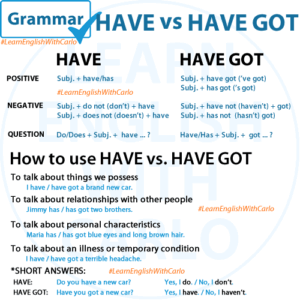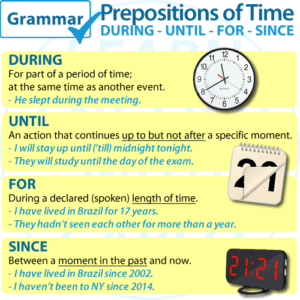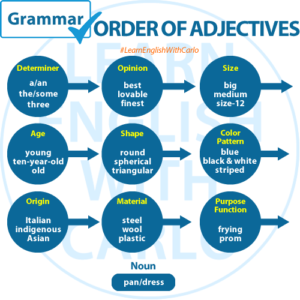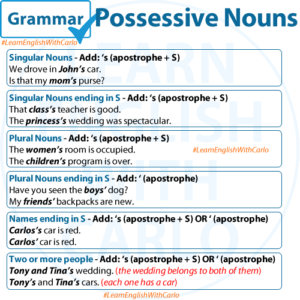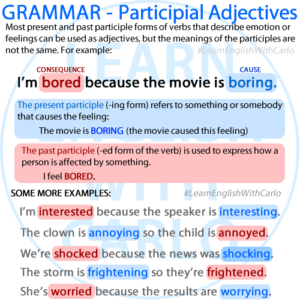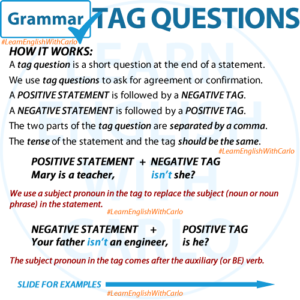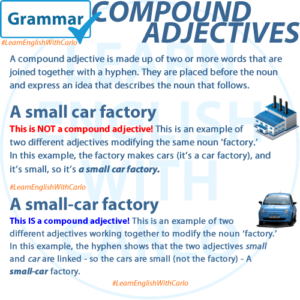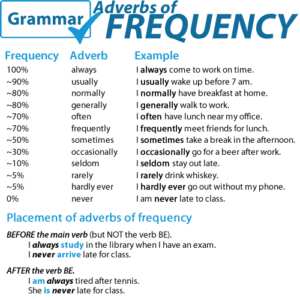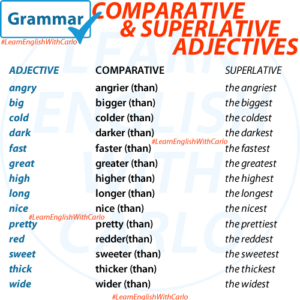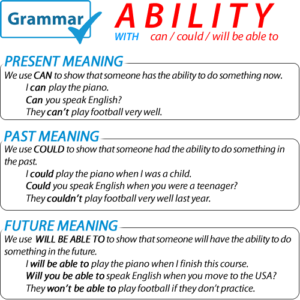When we talk about possession, relationships, illnesses, or characteristics, English gives us two ways to express the same idea:👉 HAVE and HAVE GOT Both mean the same thing, but they’re used slightly differently in everyday English. 🧩 1. Meaning and Usage Both HAVE and HAVE GOT are used to talk about things we own, relationships, …
Category: GRAMMAR
Permanent link to this article: https://englishyourway.com.br/have-vs-have-got-in-english-grammar/
Oct 25
GRAMMAR – Prepositions of Time
DURING, UNTIL, SINCE, and FOR Prepositions can sometimes be tricky to use correctly, especially when they refer to time. Let’s explore the nuances of DURING, UNTIL, FOR, and SINCE, along with deeper explanations and examples to make their usage clearer. DURING Definition: Refers to a specific period of time when something happens, or indicates that …
Permanent link to this article: https://englishyourway.com.br/prepositions-during-until-for-since/
Oct 24
GRAMMAR – Order of Adjectives
In English, when multiple adjectives are used to describe a noun, they typically follow a specific order. This order helps maintain clarity and natural-sounding language. The general order of adjectives is as follows: Here’s an example sentence using multiple adjectives in their correct order: “The beautiful small old wooden Italian music box.” In this sentence:“The” …
Permanent link to this article: https://englishyourway.com.br/grammar-order-of-adjectives/
Oct 24
Mastering Possessive Nouns in English: A Complete Guide
Possessive nouns can seem tricky at first, but once you grasp the rules, you’ll find them easy to use. In this post, we’ll explore how to form possessive nouns in different contexts, ensuring that you can confidently show ownership in your writing. 1. Singular Nouns For most singular nouns, showing possession is straightforward. Simply add …
Permanent link to this article: https://englishyourway.com.br/mastering-possessive-nouns-in-english/
Oct 24
Understanding Participial Adjectives:
The Difference Between -ed and -ing Forms In English, many verbs that describe emotions or feelings can be transformed into adjectives by using their present or past participle forms. However, it’s important to note that these two forms convey different meanings. Let’s explore how to use these participial adjectives correctly. Present Participle (-ing Form) The …
Permanent link to this article: https://englishyourway.com.br/participial-adjectives-in-english/
Oct 21
GRAMMAR – Tag Questions
A tag question is a short question added to the end of a statement. They are used to confirm information, seek agreement, or invite a response from the listener. Tag questions are characterized by their structure: they typically consist of an auxiliary verb and a pronoun that matches the subject of the statement. For example: …
Permanent link to this article: https://englishyourway.com.br/grammar-tag-questions/
Oct 15
Compound Adjectives
Understanding Compound Adjectives in English Compound adjectives are a fascinating aspect of English grammar that allow us to express detailed ideas about nouns in a concise and efficient way. As the name suggests, a compound adjective is made up of two or more words that work together as a single unit to describe a noun. …
Permanent link to this article: https://englishyourway.com.br/compound-adjectives-examples-and-rules/
Oct 14
GRAMMAR – Adverbs of frequency
Adverbs of frequency describe how often something occurs 100% – always – I always come to work on time.~90% – usually – I usually wake up before 7 am.~80% – normally – I normally have breakfast at home.~80% – generally – I generally walk to work.~70% – often – I often have lunch near my …
Permanent link to this article: https://englishyourway.com.br/grammar-adverbs-of-frequency/
Oct 11
GRAMMAR – Comparatives & Superlatives
Comparative and superlative adjectives are essential tools in English grammar for comparing and expressing degrees of qualities or characteristics. This post will clarify these concepts with clear definitions, examples, and practical applications. GRAMMAR – Comparatives & Superlatives Comparative Adjectives Definition: Comparative adjectives are used to compare two things or people and indicate which has a …
Permanent link to this article: https://englishyourway.com.br/comparative-and-superlative-adjectives/
Oct 08
Understanding Ability in English: CAN, COULD, and WILL BE ABLE TO
In English, we use different forms to express someone’s ability to do something, whether in the present, past, or future. Let’s explore how CAN, COULD, and WILL BE ABLE TO are used to talk about ability. 1. CAN – Ability in the Present We use CAN to show that someone has the ability to do …
Permanent link to this article: https://englishyourway.com.br/ability-can-could-will-be-able-to/

